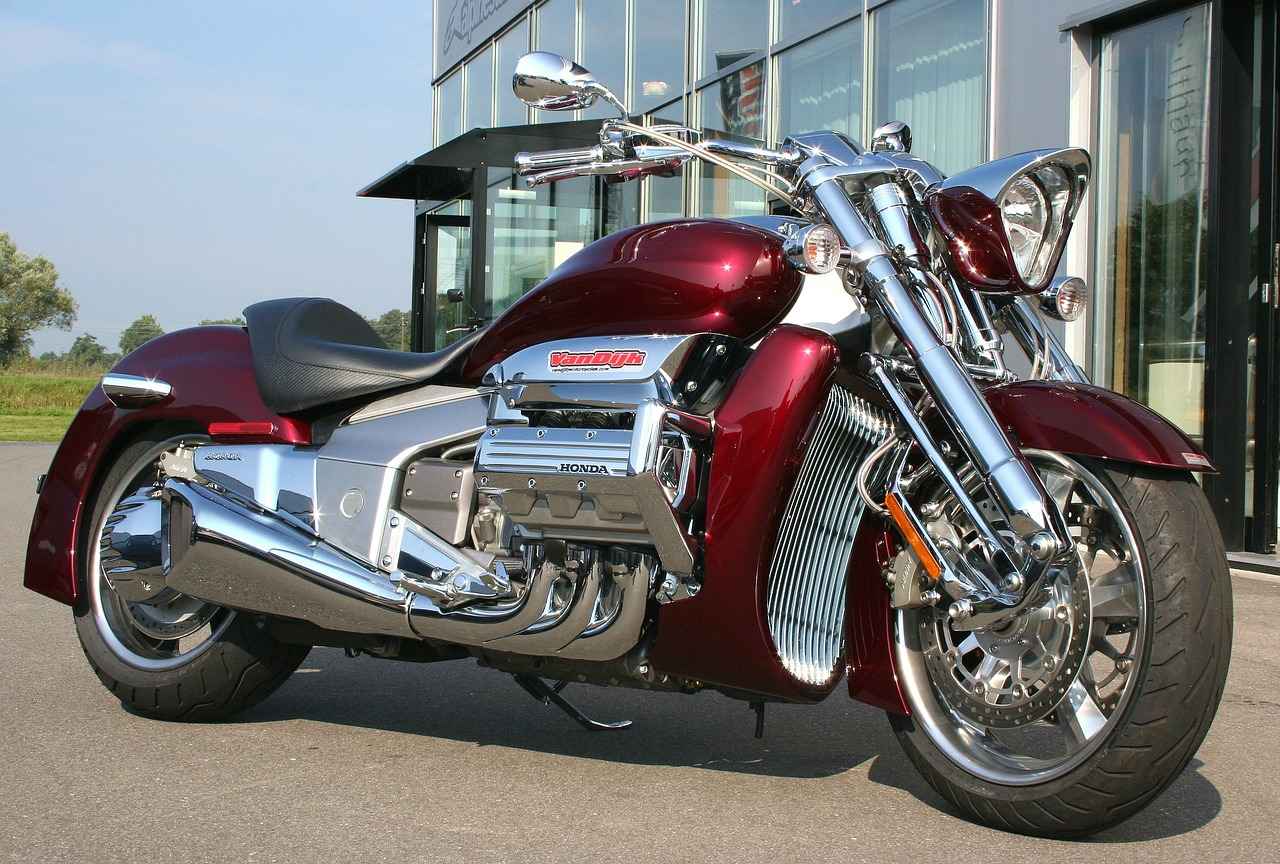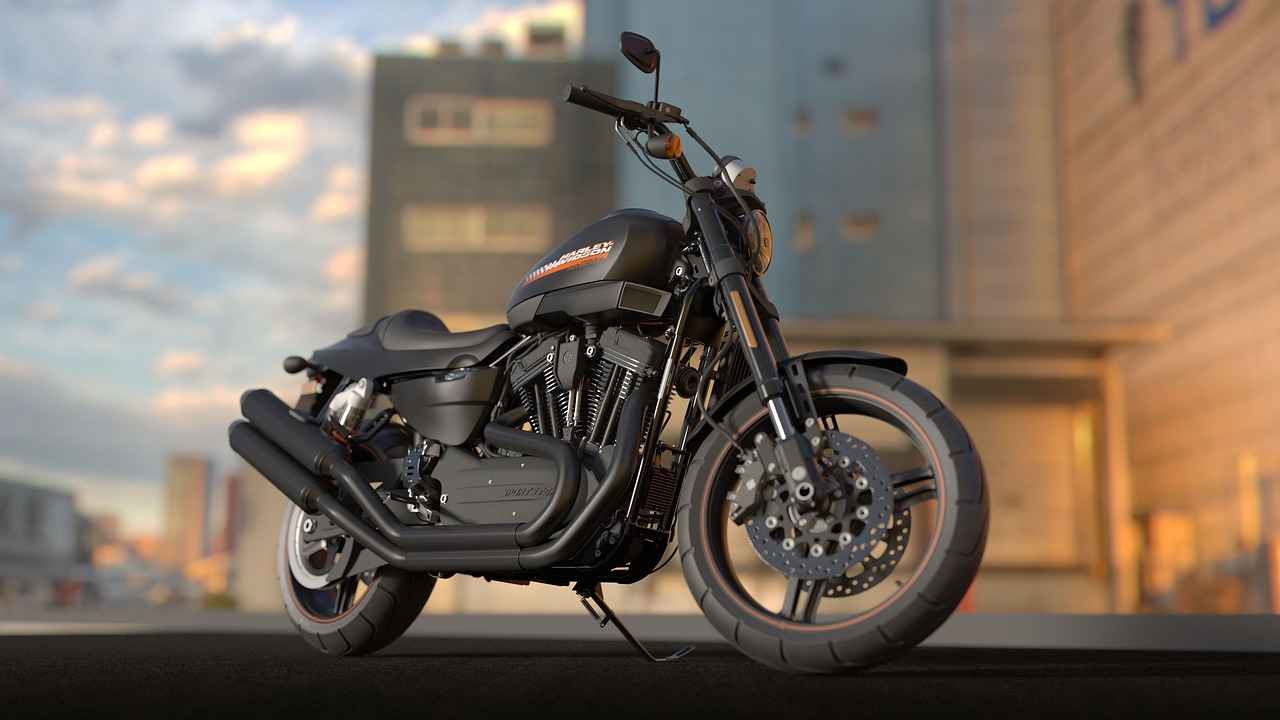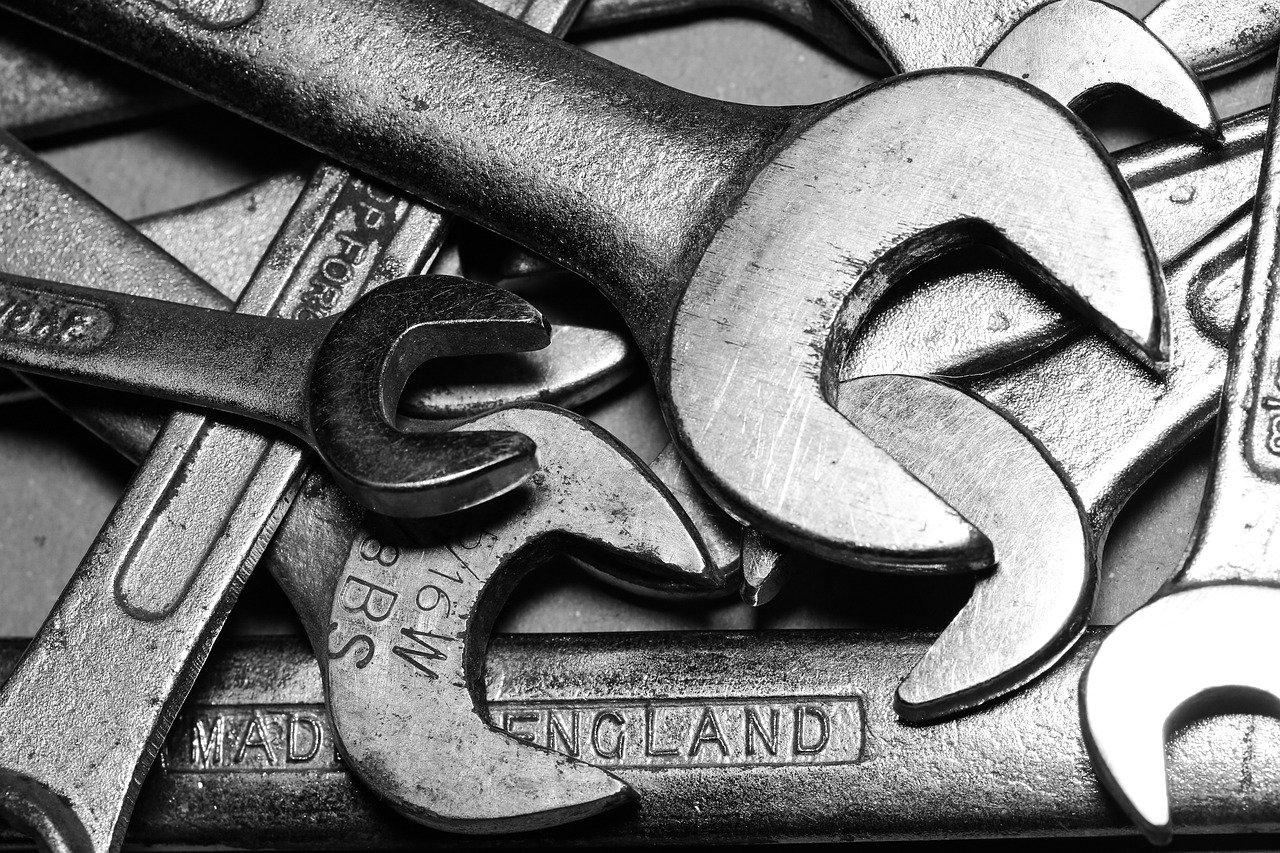The Honda Accord has long been celebrated for its reliability and performance. However, like any vehicle, certain model years have faced scrutiny due to various issues. In this article, we will explore the Honda Accord’s history, identifying specific model years that have garnered negative feedback or reliability issues from experts and owners alike.
Understanding the common issues associated with specific model years can help potential buyers make informed decisions about their purchase. Factors such as engine problems, transmission failures, and recalls can significantly impact a vehicle’s reliability and owner satisfaction.
- 2003-2004 Models: These years are notorious for transmission issues, leading to costly repairs.
- 2008 Models: Engine problems and recalls have plagued this model, affecting performance and reliability.
- 2013-2014 Models: Reports of excessive oil consumption have raised concerns among owners.
Identifying the prevalent issues in the problematic years can give buyers a clearer picture of what to expect when considering these vehicles. Below are some of the most common concerns:
Transmission problems have been reported in several Honda Accord models, particularly in the 2003 and 2004 years. Owners have experienced issues ranging from slipping gears to complete transmission failure, leading to dissatisfaction and significant repair costs.
Some Honda Accord years have faced significant engine-related recalls, particularly in 2008. Issues such as faulty fuel pumps and engine stalling have been noted, making these models less desirable options for buyers.
Owner reviews and experiences provide valuable insights into the real-world performance of specific Honda Accord years, shedding light on reliability and satisfaction levels.
Many owners have shared their dissatisfaction with certain model years, particularly those from 2003 to 2008. Common complaints include high repair costs and frequent breakdowns, which have negatively impacted their overall ownership experience.
Contrasting the negative experiences, some Honda Accord model years, such as 2015 and later, have received praise for their reliability and performance. Owners often highlight improved technology and better fuel efficiency as key benefits of these newer models.
Conducting thorough research can help potential buyers avoid problematic years and find a Honda Accord that meets their needs and expectations.
Online tools and databases can provide crucial information about recalls, owner reviews, and reliability ratings for specific Honda Accord models. Websites such as NHTSA and Edmunds are excellent starting points for research.
Expert reviews and automotive ratings can offer additional insights into which Honda Accord years are recommended and which should be avoided. Resources like Consumer Reports and J.D. Power provide valuable assessments based on extensive testing and owner feedback.
If you’re looking to avoid the problematic years of the Honda Accord, exploring alternative vehicles can help you find a reliable and satisfying option for your needs.
Considering vehicles from other manufacturers can provide a broader selection of reliable sedans, ensuring you find a model that fits your criteria. Brands like Toyota and Hyundai offer comparable options with strong reliability ratings.
In addition to the Accord, Honda offers various other models such as the Civic and CR-V that may provide better reliability, making them worthy alternatives for potential buyers.

Why Are Certain Honda Accord Years Problematic?
The Honda Accord has long been celebrated for its reliability and performance, but not all model years are created equal. Understanding the common issues associated with specific model years can significantly aid potential buyers in making informed decisions about their purchase. This article will delve into the reasons why certain Honda Accord years have garnered negative feedback and how this knowledge can help you avoid pitfalls when selecting your next vehicle.
Several factors contribute to the problematic nature of certain Honda Accord years. These can range from manufacturing defects to design flaws that emerge over time. Recognizing these issues early on can save buyers from costly repairs and dissatisfaction down the line. Here are some of the key reasons:
- Manufacturing Defects: Some model years have been associated with specific defects that affect performance and safety. For instance, certain engines may have been prone to excessive oil consumption or other mechanical failures.
- Recall History: A high number of recalls can indicate underlying issues that may not be immediately apparent. Buyers should investigate whether a model year has faced multiple recalls and the nature of those recalls.
- Owner Feedback: Reviews from current and former owners often highlight recurring problems, such as transmission failures or engine issues that can affect reliability.
By examining these factors, potential buyers can better understand why some years are less desirable. For instance, the 2003 and 2008 models have been reported to have significant transmission issues, leading to costly repairs and owner dissatisfaction.
Identifying prevalent issues in the problematic years gives buyers a clearer picture of what to expect. Here are some common concerns:
- Transmission Failures: Many Honda Accord models, particularly from the late 1990s to early 2000s, have reported transmission problems that can lead to complete failure. Owners have cited issues with slipping gears and unexpected shifts.
- Engine Problems: Some years have faced significant engine-related recalls, affecting performance and reliability. For instance, the 2013 model had issues with the engine stalling unexpectedly.
- Electrical System Failures: Various models have been reported to have electrical issues, such as malfunctioning dashboard lights or problems with the infotainment system.
Understanding these issues can help buyers avoid models that may lead to frustration and financial strain.
Conducting thorough research is crucial for potential buyers looking to avoid problematic years. Here are some strategies:
- Utilizing Online Resources: Websites like NHTSA and Edmunds provide valuable information about recalls, owner reviews, and reliability ratings for specific Honda Accord models.
- Consulting Expert Reviews: Automotive experts often publish reviews and ratings that can guide buyers toward reliable models and away from those that have received negative feedback.
By leveraging these resources, buyers can make informed decisions and select a Honda Accord that meets their needs and expectations.
If you’re looking to avoid the problematic years of the Honda Accord, exploring alternative vehicles can help you find a reliable and satisfying option. Consider:
- Comparing Other Brands: Brands like Toyota and Subaru offer reliable sedans that may provide a better ownership experience compared to certain Honda Accord years.
- Evaluating Different Honda Models: In addition to the Accord, Honda offers various other models, such as the Civic or CR-V, which may provide better reliability and performance.
Ultimately, being well-informed about the Honda Accord’s history and potential issues can empower buyers to make confident and educated decisions.

Honda Accord Years to Avoid: A Comprehensive List
When considering the purchase of a Honda Accord, it is crucial to be aware of certain model years that have been flagged for reliability concerns. This section provides a detailed overview of the specific years that potential buyers should approach with caution. By understanding the issues associated with these models, you can make a more informed decision.
While the Honda Accord is known for its reliability and longevity, some model years have garnered negative feedback from both experts and owners. Below is a list of years that have raised significant concerns:
- 2003: This year is notorious for transmission failures, which can lead to costly repairs. Many owners reported experiencing slipping gears and complete transmission failure.
- 2008: The 2008 model faced numerous complaints regarding engine performance and electrical issues. Owners frequently mentioned problems with the ignition system, which could lead to unexpected stalling.
- 2013: Known for its issues with the continuously variable transmission (CVT), the 2013 Honda Accord has been linked to rough shifting and premature wear, causing dissatisfaction among users.
- 2014: In addition to CVT problems, this model year was also subject to a significant recall related to the airbags, raising safety concerns for potential buyers.
- 2016: Although it received praise initially, many owners reported problems with the infotainment system and the electrical components, leading to frustration and additional repair costs.
These years have been flagged due to various issues that could impact the overall ownership experience. Understanding these concerns can help you avoid making a potentially costly mistake.
Several factors contribute to the reliability issues in certain Honda Accord model years. Common problems include:
- Transmission Failures: Many models from specific years have reported significant transmission issues, leading to expensive repairs and negative owner experiences.
- Engine Problems: Some models have faced recalls and engine-related issues that can affect performance and reliability.
- Electrical System Failures: Issues with electrical components can lead to various malfunctions, impacting the overall functionality of the vehicle.
These problems not only affect the vehicle’s performance but also contribute to a decrease in owner satisfaction, making these years less desirable options for potential buyers.
Owner feedback plays a crucial role in understanding the real-world performance of specific Honda Accord years. Many owners have shared their experiences, highlighting both the positive and negative aspects:
- Negative Reviews: Owners of the flagged years often report dissatisfaction due to recurring problems, particularly with transmission and engine issues.
- Positive Feedback on Other Years: In contrast, many other Honda Accord model years have received praise for their reliability and performance, indicating that not all years are problematic.
By analyzing owner experiences, potential buyers can gain valuable insights into which models to avoid and which may offer a more reliable ownership experience.
Conducting thorough research is essential for avoiding problematic years. Here are some strategies:
- Utilizing Online Resources: Websites that offer vehicle history reports and owner reviews can provide crucial insights into specific model years.
- Consulting Expert Reviews: Automotive experts often publish reliability ratings and reviews that can help guide your decision-making process.
By leveraging these resources, you can make a more informed choice and potentially avoid the pitfalls associated with certain Honda Accord model years.
If you’re looking to avoid the problematic years of the Honda Accord, consider exploring other vehicles. Here are some alternatives:
- Comparing Other Brands: Look into sedans from other manufacturers that have a reputation for reliability, such as Toyota or Mazda.
- Evaluating Different Honda Models: Honda offers several other models, like the Civic or CR-V, which may provide better reliability options.
By exploring alternatives, you can find a reliable vehicle that meets your needs without the concerns associated with certain Honda Accord years.

Common Issues in Problematic Honda Accord Models
When it comes to purchasing a used vehicle, understanding the common issues associated with specific model years is crucial. This is particularly true for the Honda Accord, a popular sedan known for its reliability and performance. However, not all model years have lived up to this reputation. In this section, we will delve into the prevalent problems found in the Honda Accord models that have received negative feedback over the years.
Identifying the prevalent issues in the problematic years can give buyers a clearer picture of what to expect when considering these vehicles. Many owners have reported issues that range from minor inconveniences to significant mechanical failures.
- Transmission Failures: One of the most frequently reported problems is transmission failure. Many Honda Accord owners have experienced issues with the automatic transmission, particularly in models from the early 2000s. Symptoms include slipping gears, delayed engagement, and even complete transmission failure, which can lead to expensive repairs.
- Engine Problems: Certain model years have been associated with engine-related issues, including excessive oil consumption and premature wear. These problems can result in costly repairs and can significantly impact the vehicle’s performance.
- Electrical System Failures: Another common issue reported by owners involves electrical system failures. Problems such as malfunctioning power windows, faulty dashboard lights, and issues with the audio system have been noted, leading to frustration among drivers.
- Brake Issues: Some Honda Accord models have faced complaints regarding the braking system, including premature wear of brake pads and rotors. This can compromise safety and lead to additional maintenance costs.
Yes, several Honda Accord years have faced significant recalls due to safety concerns and reliability issues. For instance, certain models have been recalled for problems related to airbag deployment and fuel system leaks. These recalls can greatly affect a vehicle’s desirability and are essential considerations for potential buyers.
Owner reviews often provide valuable insights into the reliability of specific Honda Accord models. Many owners have shared their experiences, highlighting both the positive and negative aspects of their vehicles. While some model years receive praise for their longevity and performance, others are criticized for the recurring issues mentioned earlier.
| Model Year | Common Issues | Owner Feedback |
|---|---|---|
| 2003 | Transmission failures, engine problems | Many report high repair costs |
| 2008 | Electrical issues, brake problems | Mixed reviews; some praise reliability |
| 2013 | Engine oil consumption | Negative feedback regarding engine performance |
By taking the time to understand these common issues, potential buyers can make more informed decisions when considering a Honda Accord. It is essential to weigh the risks associated with specific model years against the overall reputation of the vehicle. Conducting thorough research and consulting with experts can help buyers navigate the complexities of the used car market.
Transmission Failures in Certain Years
Transmission failures have emerged as a significant concern among Honda Accord owners, particularly in certain model years. These issues can lead to not only costly repairs but also a frustrating ownership experience. Understanding the specifics of these transmission problems is crucial for potential buyers and current owners alike.
Several Honda Accord model years have been reported to have prevalent transmission problems. Among these, the years 2003, 2008, and 2013 stand out. Owners of these models have frequently reported issues such as slipping gears, delayed engagement, and complete transmission failure. Such problems can arise due to various factors, including design flaws and manufacturing defects.
Recognizing the symptoms of transmission issues early can save owners from expensive repairs. Common signs include:
- Unusual noises: Grinding or whining sounds when the vehicle is in gear.
- Slipping gears: The transmission unexpectedly changes gears or loses power.
- Delayed engagement: A noticeable lag when shifting from park to drive.
- Fluid leaks: Puddles of red or brown fluid under the vehicle.
The transmission failures reported in certain Honda Accord years can often be attributed to:
- Fluid contamination: Over time, transmission fluid can become contaminated, leading to inadequate lubrication and overheating.
- Worn components: Internal parts such as clutches and gears can wear out prematurely due to design flaws.
- Software issues: Some models have experienced problems due to faulty transmission control modules, affecting shifting performance.
For owners experiencing these issues, there are several steps to take:
- Regular maintenance: Keeping up with fluid changes and inspections can help prevent problems.
- Seek professional help: If symptoms arise, consulting a qualified mechanic is essential to diagnose and address the issue promptly.
- Consider extended warranties: For those owning affected models, an extended warranty might cover costly repairs.
The experiences of Honda Accord owners regarding transmission issues vary significantly. Many have expressed their frustration over the high repair costs and the inconvenience of being without their vehicle. Online forums and review sites often feature discussions where owners share their stories, providing valuable insights into the reliability of specific model years.
For potential buyers, it is essential to conduct thorough research before purchasing a Honda Accord. Investigating the model year, checking for recalls, and reading owner reviews can provide a clearer picture of the vehicle’s reliability. Additionally, considering alternatives from other manufacturers might be wise if the risks seem too high.
In summary, while the Honda Accord is generally known for its reliability, certain model years are plagued by transmission problems that can lead to significant owner dissatisfaction. By being informed and vigilant, both current and potential owners can navigate these challenges effectively.
Engine Problems and Recalls
The Honda Accord has long been celebrated for its reliability and performance, but not all model years live up to this reputation. Among the various issues that have plagued certain Honda Accord years, engine problems and recalls stand out as significant concerns for potential buyers. In this section, we will delve into the specific engine-related issues that have arisen in particular model years, shedding light on why they might be less desirable options for consumers.
Over the years, several Honda Accord models have encountered serious engine-related issues, which have led to costly repairs and dissatisfaction among owners. Some of the most common problems include:
- Excessive Oil Consumption: Some engines have been reported to consume oil at an alarming rate, which can lead to severe engine damage if not addressed promptly.
- Engine Stalling: Certain model years have experienced unexpected stalling, which poses a serious safety risk and can leave drivers stranded.
- Timing Belt Failures: In some instances, timing belts have failed prematurely, leading to catastrophic engine failure and expensive repairs.
In addition to individual engine problems, various model years of the Honda Accord have been subject to significant recalls. These recalls often stem from safety concerns or manufacturing defects that could compromise the vehicle’s performance and reliability. Some noteworthy recalls include:
- 2013-2015 Models: These years faced recalls due to issues with the fuel pump, which could cause the engine to stall unexpectedly.
- 2008-2010 Models: These models were recalled for problems related to the power steering, which could affect steering control and increase the risk of accidents.
The engine problems and recalls associated with certain Honda Accord years can significantly impact their performance and reliability. Buyers should be aware that purchasing a vehicle with a history of engine issues can lead to:
- Increased Maintenance Costs: Owners may face higher-than-average repair bills due to ongoing engine problems.
- Decreased Resale Value: Vehicles with a history of recalls or engine issues may have lower resale values, affecting long-term investment.
- Safety Concerns: Engine stalling or failure can pose serious safety risks, making these models less desirable.
For potential buyers, it is crucial to do thorough research before purchasing a Honda Accord. Here are some practical tips:
- Check Recall History: Utilize online resources to check for any recalls associated with specific model years.
- Read Owner Reviews: Owner experiences can provide valuable insights into the reliability of particular models.
- Consult Expert Ratings: Automotive experts often provide detailed reviews and reliability ratings that can guide your decision.
In summary, while the Honda Accord remains a popular choice among sedans, certain model years have faced significant engine-related recalls and problems that can affect their overall desirability. By understanding these issues, potential buyers can make more informed decisions and select a model that aligns with their expectations for performance and reliability.

Owner Experiences: What Do They Say?
The real-world performance of the Honda Accord varies significantly across different model years, and owner reviews play a crucial role in understanding these differences. Insights from actual users provide a window into the reliability and satisfaction levels that potential buyers can expect. By analyzing these experiences, we can identify which years have been met with enthusiasm and which have faced criticism.
What Are Owners Saying About Specific Honda Accord Years?
Many owners have taken to online forums and review platforms to share their experiences with various Honda Accord models. The feedback often highlights both the strengths and weaknesses of specific years. For instance, while some owners rave about the fuel efficiency and comfort of their Accord, others express frustration over mechanical failures and costly repairs.
- Positive Experiences: Owners of certain model years report high levels of satisfaction due to the vehicle’s durability and performance. Many appreciate the smooth ride and spacious interiors.
- Negative Feedback: Conversely, some years have garnered negative reviews primarily due to recurring issues such as transmission failures and engine problems. These issues have led to a decline in owner satisfaction and increased repair costs.
How Do Reliability Ratings Influence Owner Sentiment?
Reliability ratings from trusted sources often align with owner experiences. For example, model years that have been flagged for frequent repairs tend to receive lower satisfaction scores from owners. This correlation between expert ratings and personal experiences is vital for potential buyers looking to make informed decisions.
| Model Year | Owner Satisfaction Rating | Common Issues |
|---|---|---|
| 2010 | 4.5/5 | Minor electrical issues |
| 2013 | 3.8/5 | Transmission problems |
| 2016 | 4.7/5 | None reported |
| 2018 | 4.2/5 | Infotainment glitches |
What Are the Key Takeaways from Owner Reviews?
Owner reviews often emphasize the importance of regular maintenance and careful selection of model years. Those who have had positive experiences typically highlight how well the vehicle has been maintained, while those with negative experiences often mention a lack of proper care or previous issues that were not disclosed at the time of purchase.
Moreover, owners frequently recommend conducting thorough research before purchasing a used Honda Accord. This includes checking for any outstanding recalls and reading multiple reviews to get a balanced perspective on the model year in question.
Are There Any Patterns in Owner Feedback?
Yes, distinct patterns emerge when analyzing owner feedback. Many owners of newer models report fewer issues, while older models may have a mix of experiences. This suggests that Honda has made strides in improving reliability over the years. Additionally, owners often express a strong loyalty to the brand, citing the Accord’s overall performance and longevity as key factors in their satisfaction.
In summary, owner experiences provide invaluable insights into the Honda Accord’s performance across various model years. By paying attention to these reviews, potential buyers can navigate the complexities of choosing the right Honda Accord, ensuring they select a vehicle that meets their needs and expectations.
Negative Reviews from Honda Accord Owners
Many Honda Accord owners have expressed their dissatisfaction with specific model years, pointing out a series of recurring issues that significantly impact their overall ownership experience. Understanding these concerns is crucial for potential buyers who wish to make an informed decision.
One of the most frequently mentioned problems is related to the transmission system. Owners of certain model years have reported instances of transmission failure, which not only leads to costly repairs but also creates a sense of frustration. For example, the 2003 and 2004 models were notorious for their transmission issues, with many drivers experiencing sudden slippage or complete failure, often shortly after warranty expiration.
In addition to transmission problems, some model years have faced significant engine-related issues. Owners of the 2010 Honda Accord, for instance, reported problems with excessive oil consumption and engine knocking. Such concerns have led to recalls, which can severely affect the vehicle’s performance and reliability. Affected owners often feel disheartened, as they expect a certain level of quality from the Honda brand.
Moreover, the interior quality and technology features in some models have also come under scrutiny. Many owners have noted that the materials used in the cabin of certain years feel less durable than in previous models, leading to premature wear and tear. Additionally, issues with the infotainment systems, such as connectivity problems and software glitches, have been a common complaint. These factors contribute to a less satisfying ownership experience.
Furthermore, the fuel efficiency of certain Honda Accord models has been questioned by owners. While Honda is generally known for its economical vehicles, some model years have not met expectations, leading to frustration among drivers who value fuel economy. The 2008 model year, for instance, received mixed reviews regarding its fuel efficiency, with some owners stating that real-world mileage fell short of the manufacturer’s claims.
Owner experiences often reflect a broader sentiment regarding reliability. Many individuals have taken to online forums and review platforms to share their stories, creating a wealth of information for prospective buyers. Negative reviews tend to highlight not only the mechanical issues but also the customer service experience when dealing with these problems. Some owners report feeling unsupported by dealerships when seeking repairs or addressing concerns.
Despite these negative experiences, it is essential to acknowledge that not all Honda Accord model years are problematic. Some owners have had positive experiences with later models, reporting fewer issues and greater satisfaction. This contrast serves as a reminder for potential buyers to conduct thorough research before making a purchase decision.
In conclusion, while many Honda Accord owners have voiced their concerns about specific model years, understanding these issues can help future buyers navigate their options effectively. By being aware of common problems and seeking out models with positive feedback, potential owners can enhance their chances of a satisfying ownership experience.
Positive Feedback on Other Model Years
When it comes to the Honda Accord, not all model years are created equal. While some years have faced criticism for their reliability, others have stood out for their exceptional performance and dependability. In this section, we will delve into the positive feedback surrounding certain Honda Accord model years, highlighting the features and qualities that have earned them praise from both owners and automotive experts.
Several Honda Accord model years have consistently received accolades for their reliability and performance. These years are often recommended by experts and are sought after by buyers looking for a dependable vehicle. Below are some of the standout years:
- 2013 Honda Accord: This model year is frequently praised for its fuel efficiency, spacious interior, and advanced safety features. Many owners report minimal issues and high satisfaction levels.
- 2015 Honda Accord: Known for its smooth ride and responsive handling, the 2015 model has received high marks for its overall performance and reliability.
- 2016 Honda Accord: This year brought enhancements in technology and safety, with features like adaptive cruise control and lane-keeping assist, making it a favorite among tech-savvy drivers.
The positive feedback for these Honda Accord models can be attributed to several key factors:
- Durability: Owners of these model years often report that their vehicles have lasted well beyond the average lifespan, showcasing Honda’s commitment to building long-lasting cars.
- Comfort: The interior design of these models is frequently highlighted for its comfort and spaciousness, making them ideal for families and long drives.
- Fuel Economy: Many of these years feature engines that provide excellent fuel efficiency, which is a significant consideration for budget-conscious buyers.
Owner reviews provide valuable insights into the real-world performance of these praised Honda Accord models. Many owners have shared positive experiences, noting:
- How reliable their vehicles have been, with few repairs needed over the years.
- The comfort of the ride and the spaciousness of the interior, making it suitable for both daily commutes and family trips.
- The advanced safety features that provide peace of mind while driving.
Automotive experts also support the positive feedback on these model years. Reviews from various automotive publications consistently highlight:
- The value for money that these models offer, combining performance with affordability.
- The advanced technology features that enhance the driving experience.
- The reputation of Honda for quality engineering, which is evident in these well-regarded models.
In summary, while some Honda Accord model years have encountered reliability issues, others have emerged as shining examples of what a dependable vehicle should be. By focusing on these praised years, buyers can make informed decisions and enjoy the many benefits that come with owning a reliable Honda Accord.

How to Research Honda Accord Reliability
When considering the purchase of a used Honda Accord, conducting thorough research is crucial. This process not only helps potential buyers avoid problematic years but also assists in identifying models that align with their specific needs and expectations. The Honda Accord has a rich history, but like any vehicle, certain model years have faced issues that could impact their reliability and performance.
Understanding the nuances of different model years can significantly influence your buying decision. Many buyers have reported issues with specific Honda Accord years, which can lead to costly repairs and dissatisfaction. By researching these models, you can avoid the pitfalls associated with them.
One of the most effective ways to research Honda Accord reliability is by utilizing various online resources. Websites dedicated to automotive reviews, such as Edmunds and Kelley Blue Book, provide detailed information about recalls, owner reviews, and reliability ratings. These platforms often feature user-generated content, giving you a glimpse into the real-world experiences of other Honda Accord owners.
In addition to owner reviews, expert analyses can offer a wealth of information. Automotive experts often conduct in-depth reviews of vehicles, discussing their strengths and weaknesses. Look for resources that provide a breakdown of common issues associated with specific model years. This can help you identify which Honda Accord models are recommended and which should be approached with caution.
- Transmission Problems: Certain model years have been notorious for transmission failures, which can lead to significant repair costs.
- Engine Recalls: Some Accords have faced major recalls due to engine-related issues, affecting their overall reliability.
- Electrical System Failures: Various Honda Accord models have reported problems with electrical systems, leading to operational failures.
Another excellent way to gather insights is by engaging with owner communities. Online forums and social media groups dedicated to Honda Accord enthusiasts can provide real-time feedback and discussions about specific model years. This interaction can help you gauge the satisfaction levels of current and past owners, offering a more nuanced understanding of the vehicle’s performance over time.
When researching, it’s essential to compare different model years side by side. Create a table or a list that outlines the pros and cons of each year, focusing on key factors such as reliability ratings, common issues, and owner satisfaction. This visual representation can simplify your decision-making process and help you identify the best options available.
Example Comparison Table:| Model Year | Reliability Rating | Common Issues | Owner Satisfaction ||------------|--------------------|----------------------------|--------------------|| 2010 | 4.5/5 | Transmission failures | Mixed || 2015 | 4.8/5 | Minor electrical issues | High || 2018 | 4.9/5 | None reported | Very High |
If you find that the Honda Accord has too many problematic years, consider exploring alternative vehicles. There are numerous reliable sedans on the market that may better meet your needs. Brands such as Toyota, Hyundai, and Nissan offer models with strong reputations for reliability and customer satisfaction.
Ultimately, by conducting thorough research, potential buyers can navigate the complexities of the used car market. This effort will not only help you avoid problematic years of the Honda Accord but also lead you to a vehicle that aligns with your expectations and lifestyle.
Utilizing Online Resources for Vehicle History
The process of purchasing a vehicle, particularly a used one like the Honda Accord, can be daunting. With various model years exhibiting different reliability ratings, understanding the vehicle’s history is essential. One of the most effective ways to gather information is by . This article will delve into how these tools can guide potential buyers in making informed decisions.
Online tools and databases are platforms that compile extensive information about vehicles, including recalls, owner reviews, and reliability ratings. They serve as a valuable resource for anyone looking to evaluate the Honda Accord’s performance over the years. By accessing these platforms, buyers can gain insights that are not readily available through traditional means.
Recalls are critical indicators of a vehicle’s reliability and safety. They reflect the manufacturer’s acknowledgment of a defect that could pose risks to the driver and passengers. By checking recall databases, prospective buyers can identify specific Honda Accord models that have faced significant issues. This information is crucial for avoiding vehicles that may require costly repairs or could compromise safety.
Owner reviews provide a wealth of information regarding real-world experiences with specific Honda Accord models. These reviews often highlight recurring issues that may not be evident in expert analyses. By reading firsthand accounts, potential buyers can gauge the satisfaction levels of current and former owners, making it easier to identify which model years to avoid.
Reliability ratings from trusted automotive sources can significantly influence purchasing decisions. These ratings assess various factors, including engine performance, transmission reliability, and overall durability. By comparing the ratings of different Honda Accord model years, buyers can pinpoint which vehicles have consistently performed well and which have not.
- National Highway Traffic Safety Administration (NHTSA): This government website offers comprehensive information on recalls and safety ratings.
- Carfax: Known for its vehicle history reports, Carfax provides details on previous ownership, accident history, and service records.
- Consumer Reports: A trusted source for reliability ratings, Consumer Reports evaluates vehicles based on extensive testing and owner feedback.
- Edmunds: This site features expert reviews, pricing information, and owner ratings, helping buyers make informed choices.
To maximize the benefits of online resources, buyers should:
1. Gather information from multiple sources to get a well-rounded view.2. Pay attention to the dates of reviews and ratings to ensure the information is current.3. Look for patterns in owner feedback to identify common issues.4. Cross-reference recall information with reliability ratings for a comprehensive assessment.
In conclusion, utilizing online resources for vehicle history is an essential step for anyone considering a Honda Accord. By leveraging databases that provide information on recalls, owner reviews, and reliability ratings, buyers can make informed decisions that align with their needs. This proactive approach not only enhances the likelihood of finding a reliable vehicle but also contributes to a more satisfying ownership experience.
Consulting Expert Reviews and Ratings
When considering the purchase of a Honda Accord, consulting expert reviews and automotive ratings can be invaluable. These resources provide insights into the reliability, performance, and overall satisfaction associated with different model years. Understanding which years are recommended and which should be avoided can save potential buyers from costly repairs and dissatisfaction.
Expert reviews are typically conducted by automotive journalists and industry analysts who have extensive experience with various vehicle models. They evaluate cars based on a variety of factors, including:
- Performance: Acceleration, handling, and fuel efficiency.
- Reliability: Frequency of repairs and maintenance issues.
- Safety: Crash test ratings and safety features.
- Owner Satisfaction: Feedback from actual Honda Accord owners.
There are numerous platforms where potential buyers can find expert reviews and ratings:
- Automotive Websites: Sites like Edmunds, Car and Driver, and MotorTrend offer in-depth reviews and comparisons.
- Consumer Reports: This non-profit organization provides reliability ratings based on surveys from thousands of car owners.
- Online Forums: Communities such as Reddit and dedicated Honda forums often discuss specific model years and their performance.
Experts often highlight specific Honda Accord years that have either excelled or faltered. For instance, models from 2013 to 2015 generally receive high marks for their reliability and performance. Conversely, 2008 and 2010 models have been flagged for transmission issues and engine problems, making them less desirable options.
Automotive ratings typically use a numerical scale or letter grades to convey the quality and reliability of a vehicle. A higher score usually indicates better performance and fewer reported issues. For example:
| Model Year | Rating | Common Issues |
|---|---|---|
| 2013 | 9/10 | Minimal issues reported |
| 2010 | 5/10 | Transmission failures |
| 2015 | 8/10 | Occasional electrical problems |
In addition to expert insights, owner reviews provide a real-world perspective on the Honda Accord’s performance. Many owners share their experiences regarding reliability, comfort, and maintenance costs, which can be crucial for potential buyers. It is essential to consider both expert ratings and owner feedback to form a comprehensive view.
When consulting expert reviews and ratings, pay attention to:
- Consistency: Look for recurring themes in reviews across different platforms.
- Detail: More detailed reviews often provide a clearer picture of both pros and cons.
- Updates: Ensure the reviews are recent, as automotive technology and reliability can change significantly over time.
In summary, expert reviews and automotive ratings are essential tools for anyone considering a Honda Accord. By utilizing these resources, potential buyers can make more informed decisions, avoiding problematic model years and focusing on those that offer the best performance and reliability.

What Alternatives to Consider?
If you’re looking to avoid the problematic years of the Honda Accord, exploring alternative vehicles can help you find a reliable and satisfying option for your needs. The automotive market is vast, and there are numerous alternatives that not only match the Accord in terms of features and comfort but also offer enhanced reliability. Below, we delve into some excellent alternatives that you might consider.
Choosing an alternative vehicle can be beneficial for several reasons:
- Enhanced Reliability: Many alternatives have proven track records for reliability, minimizing the risk of unexpected repairs.
- Variety of Features: Different brands and models may offer unique features that cater to your specific needs.
- Cost-Effectiveness: Some alternatives may provide better value for money, especially when considering long-term ownership costs.
Here are some alternatives that stand out in the sedan category:
- Toyota Camry: Known for its reliability and strong resale value, the Camry offers a comfortable ride and a suite of advanced safety features.
- Hyundai Sonata: With a stylish design and a robust warranty, the Sonata is packed with technology and provides excellent fuel efficiency.
- Nissan Altima: The Altima features a spacious interior and a smooth ride, making it a great option for families and commuters alike.
- Subaru Legacy: Renowned for its all-wheel-drive system and safety ratings, the Legacy is perfect for those who live in areas with challenging weather conditions.
If you are still inclined towards Honda, consider these models:
- Honda Civic: Smaller than the Accord, the Civic is celebrated for its sporty handling, fuel efficiency, and reliability.
- Honda HR-V: This subcompact SUV offers versatility and ample cargo space, making it a great alternative if you need more room.
When evaluating alternatives, consider factors such as:
- Fuel Efficiency: How does the vehicle perform in terms of miles per gallon?
- Safety Ratings: Check ratings from organizations like the IIHS and NHTSA.
- Owner Satisfaction: Look at reviews and feedback from current owners to gauge their experiences.
To make an informed decision, utilize various resources:
- Online Reviews: Websites like Edmunds and Consumer Reports provide comprehensive reviews and reliability ratings.
- Automotive Forums: Engaging in discussions on platforms like Reddit or specific car forums can provide real-world insights from other owners.
- Dealership Visits: Visiting dealerships allows you to test drive vehicles and ask questions about warranty and service history.
In summary, while the Honda Accord has been a popular choice for many, there are numerous alternatives that offer reliability, comfort, and advanced features. Whether you choose another Honda model or explore options from different manufacturers, the key is to conduct thorough research to ensure you find the vehicle that best suits your needs.
Comparing Other Brands and Models
When it comes to purchasing a new vehicle, many buyers focus primarily on one brand, often overlooking the vast array of options available in the market. Considering vehicles from other manufacturers can provide a broader selection of reliable sedans, ensuring you find a model that fits your criteria. This article will delve into the benefits of exploring alternatives to the Honda Accord, highlighting various brands and models that may offer enhanced reliability and features.
While the Honda Accord is a popular choice among sedan enthusiasts, it is essential to evaluate other options for several reasons:
- Broader Selection: By expanding your search, you can discover models that may better suit your personal preferences and needs.
- Enhanced Features: Different manufacturers often offer unique features that could enhance your driving experience.
- Improved Reliability: Some brands may have better reliability ratings than specific Honda Accord model years, providing peace of mind.
Here are some notable alternatives to consider when looking for a reliable sedan:
| Brand | Model | Key Features |
|---|---|---|
| Toyota | Camry | Excellent fuel efficiency, spacious interior, and high reliability ratings. |
| Hyundai | Sonata | Modern design, advanced safety features, and a strong warranty. |
| Subaru | Legacy | Standard all-wheel drive, safety ratings, and comfortable ride. |
| Kia | Optima | Stylish exterior, user-friendly technology, and long warranty coverage. |
When comparing vehicles, it’s crucial to consider reliability and performance:
- Consumer Reports: Check reviews and ratings from reputable sources to gauge the reliability of different models.
- Owner Feedback: Look for testimonials from current owners to understand their experiences with the vehicle.
- Expert Reviews: Automotive experts often provide insights into the pros and cons of each model, helping you make an informed decision.
To ensure you choose the best vehicle for your needs, follow these steps:
- Test Drive: Always take a test drive to assess comfort, handling, and features.
- Research: Use online resources to compare specifications, safety ratings, and owner reviews.
- Consider Total Cost of Ownership: Factor in insurance, maintenance, and fuel costs when evaluating different models.
In summary, while the Honda Accord remains a strong contender in the sedan market, exploring alternatives can lead you to discover vehicles that better align with your needs and preferences. By expanding your search to include other brands and models, you can find a reliable sedan that offers the features and performance you desire.
Evaluating Different Honda Models
When considering a reliable vehicle, evaluating different Honda models can be a rewarding endeavor. While the Honda Accord has its merits, potential buyers should also explore other options within the Honda lineup that may offer enhanced reliability and performance. In this section, we will delve into various Honda models that stand out as worthy alternatives to the Accord, ensuring you make an informed decision.
Honda has built a reputation for producing vehicles that are both reliable and efficient. However, some models may outperform the Accord in terms of reliability and overall owner satisfaction. By exploring these alternatives, buyers can mitigate the risks associated with specific Accord model years that have faced criticism.
The Honda Civic is a compact car that has consistently received high marks for its reliability and fuel efficiency. With a history of strong performance and a loyal customer base, the Civic often ranks higher than the Accord in terms of owner satisfaction. Key features include:
- Fuel Efficiency: The Civic is known for its impressive gas mileage, making it an economical choice for daily commuting.
- Sporty Handling: Many drivers appreciate the Civic’s responsive handling and engaging driving experience.
- Advanced Safety Features: The Civic is equipped with Honda Sensing, a suite of safety technologies that enhance driver confidence.
If you require more space and versatility, the Honda CR-V may be the perfect fit. This compact SUV offers a combination of reliability, spaciousness, and practicality. Here are some reasons to consider the CR-V:
- Ample Cargo Space: The CR-V provides generous cargo capacity, making it ideal for families or those who need extra room for gear.
- Comfortable Ride: Known for its smooth ride quality, the CR-V excels in providing comfort during long journeys.
- Hybrid Options: For eco-conscious buyers, the CR-V hybrid variant offers an excellent balance of power and efficiency.
The Honda HR-V is another excellent alternative for those seeking a smaller SUV. It combines the benefits of a compact vehicle with the versatility of an SUV. Consider the following features:
- Magic Seat: The innovative rear seat design allows for multiple configurations, maximizing interior space.
- Fuel Efficiency: The HR-V is designed to be economical, appealing to budget-conscious buyers.
- Compact Size: Its smaller footprint makes it easy to maneuver in urban environments.
For those interested in hybrid technology, the Honda Insight offers a compelling choice. This sedan combines the reliability of Honda with the benefits of hybrid efficiency. Key points include:
- Exceptional Fuel Economy: The Insight is designed for maximum efficiency, making it an ideal choice for eco-friendly drivers.
- Modern Technology: The Insight comes equipped with advanced technology features that enhance both safety and entertainment.
- Sleek Design: With its stylish exterior, the Insight appeals to buyers looking for a modern vehicle.
In summary, while the Honda Accord remains a popular choice, exploring other models within the Honda lineup can lead to a more satisfying ownership experience. The Civic, CR-V, HR-V, and Insight are all strong contenders that offer reliability and performance, ensuring that you find the vehicle that best meets your needs. By considering these alternatives, you can make a well-informed decision and enjoy the benefits of owning a Honda.
Frequently Asked Questions
- What are the most problematic years for the Honda Accord?
Many experts suggest avoiding the Honda Accord models from 2003, 2008, and 2013 due to frequent issues reported by owners, including transmission failures and engine problems.
- How can I identify if a used Honda Accord has reliability issues?
Check online resources for vehicle history, owner reviews, and expert ratings. Websites like Carfax and Edmunds can provide insights into recalls and common problems for specific model years.
- Are there Honda Accord years that are highly recommended?
Absolutely! Many owners praise the 2016 and 2018 models for their reliability and performance, making them excellent choices for potential buyers.
- What should I do if I own a problematic Honda Accord?
If you own a model with known issues, consider consulting a trusted mechanic for repairs or check if there are any recalls that you can take advantage of. Staying informed can save you from future headaches!
- What alternatives to the Honda Accord should I consider?
If you’re looking for reliable sedans, consider alternatives like the Toyota Camry or Hyundai Sonata. They often receive better reliability ratings and could be a safer bet!



